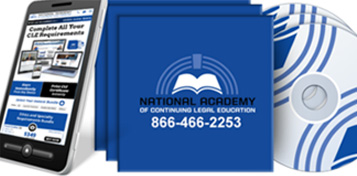About This Course
The reduction to writing of an agreed-upon understanding among parties can sometimes be viewed as a cursory step in formalizing a business relationship. Yet the manner in which concepts are expressed on a page is often as important as the concepts themselves. Solid contract-drafting skills are therefore essential tools to any attorney who deals with transactions or business relationships. Unfortunately, although contract counterparties might have the best of intentions, many contracts—even those drafted by experienced attorneys and those relating to the most prominent of transactions—are plagued with ambiguities, inconsistencies, unintended imprecision, and “bloat” from unnecessary legalese, rendering them confusing, risky, and potentially very costly.
Fundamental Concepts in Drafting Contracts: What Most Attorneys Fail to Consider is a course designed to convey fundamental—but often unconsidered—principles to assist attorneys with drafting, analyzing, and interpreting contracts. Unlike many other contract-drafting courses, this course focuses on the manner in which concepts are expressed in a contract, rather than the substance of any provision or contract in particular.
Topics include:
- the importance of language in contracts
- categories of contract language (including language of performance, obligations, prohibitions, discretionary language, representations, acknowledgments, and language of policy)
- the distinction between shall, will, and must
- conditional language
- language of exception and subordination
- the concept of deemed
- references to time
- ambiguities associated with and, or, and and/or
- legal archaisms
*This course qualifies as a Transitional course but can only be taken by Newly Admitted attorneys in NY that have a special exemption from the requirement that skills and ethics credits be taken in an approved live format. This course can be taken by all Experienced NY attorneys.






